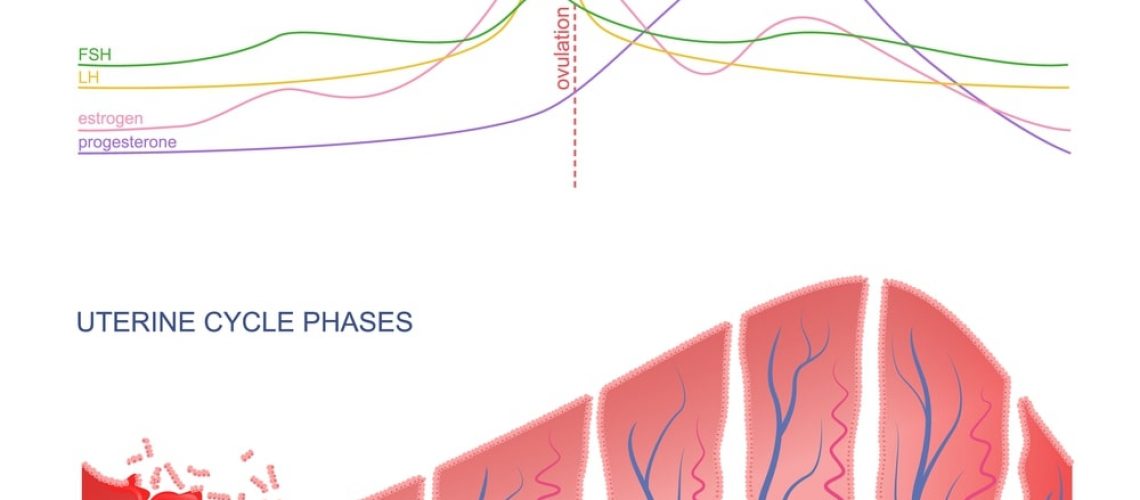Improving endometrial receptivity for IVF and Embryo Transfer (IVF-ET) using herbal medicine
Endometrial receptivity results from an orchestrated interplay between the fertilized ovum and the maternal uterine endometrium. Its receptive status, known as the window of implantation, is reached only briefly in the mid-luteal phase and it is now recognised that the failure of the endometrium to achieve receptivity and the timing of the receptive period are important issues in the success of IVF. It has become evident that ovarian stimulation, although a central component of IVF, may itself have detrimental effects on endometrial receptivity, embryonic implantation and perhaps also pregnancy outcomes.
In China and Korea, herbal medicines and ART have been increasingly used together in recent years to improve endometrial receptivity with good clinical effectiveness. Traditional herbal medicine treatment as an adjunctive therapy for assisted reproductive technology has been proven effective in terms of induction of ovulation and development and maintenance of endometrium.
Studies have demonstrated that herbal medicine treatment can increase the success rate of in-vitro fertilisation and embryo transfer (IVF-ET) outcomes by promoting uterus receptivity as follows:
– Endometrial thickness – Endometrial vascularization and blood flow in the uterus – Decreasing FSH level for making a preparation to IVF treatment – Improving Progesterone level for embryo implantation and development |
The abnormal hormone concentrations present during IVF cycles are responsible for altering the receptive phase endometrium in a way that is detrimental to implantation. Administration of gonadotrophins, as well as gonadotrophin-releasing hormone agonists and antagonists administered by differing protocols, result in very high oestrogen and progesterone concentrations, and this is compounded by the HCG administered for final oocyte maturation prior to oocyte harvest.
There is an absolute need for synchrony of development between the maternal endometrium and a developing blastocyst, however it is known that the window of implantation moves forward during the controlled ovarian hyper stimulation, which will negatively affect the implantation.
Poor endometrial receptivity is the largest known cause of failed IVF treatment and early miscarriage
Indeed, implantation failure has been identified as the most common outcome following embryo transfer. The vital, but often overlooked factor, is the ‘soil for the seed’, the endometrium, which becomes receptive for embryo implantation only in the mid-secretory phase of the menstrual cycle in synchrony with blastocyst development. An inability to establish receptivity leads to infertility and is a major cause for implantation failure in IVF cycles. Whilst women undergo considerable hormonal treatment to induce oocyte development and ovulation in the IVF cycle, which may impact on endometrial development, the embryo is then transferred without establishing whether the endometrium is likely to be receptive. When the implantation fails, further ovarian stimulation and ovulation induction is repeated.
Improving endometrial receptivity using historically established herbal medicine
To conceive either naturally or using an assisted pregnancy technique, a receptive uterine state is absolutely essential. Historically established herbal fertility medicine treatments are scientifically proven to exert their actions through various mechanisms and the most prominent feature is the improvement of the endometrial receptivity and the implantation environment with the recovery of the ovulation cycle. If the herbal medicine treatment which improves endometrial receptivity is performed together with ovarian stimulation and ovulation induction, it contributes to an increase in implantation rates. The use of herbal medicine treatment is strongly recommended particularly when the endometrium is thin or has repeatedly failed to be implanted.
Pathways Clinic specializes in and has a proven track record of success in providing the adjunctive endometrial receptivity treatments which have been long-practised and proven to be effective as an integrated IVF support programme in Korea. Pathways Clinic supports patients embarking on IVF treatment for the first time but also provides patients who have repeatedly failed IVF treatment with specialized programmes.
Dr Ryu’s article:
Endometrial Receptivity and Implantation
Reference:
Assessing Receptivity of the Human Endometrium to Improve Outcomes of Fertility Treatment

